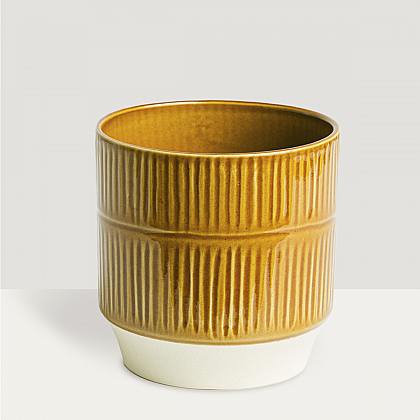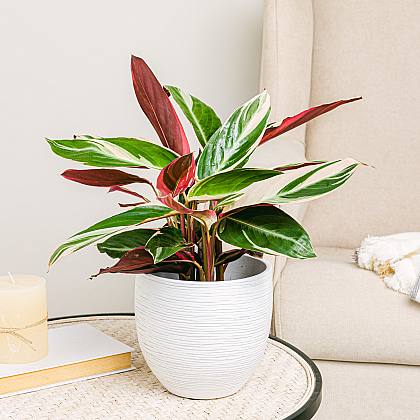Do you have pets? Learn about the ideal plants to have at home without putting them at risk
If you have pets at home, it's important to make sure that the plants you have don't pose a danger to them. In this article, we'll give you some recommendations on safe plants to have at home if you have dogs or cats
If you have pets at home, it's important to make sure that the plants you have don't pose a danger to them. In this article, we'll give you some recommendations on safe plants to have at home if you have dogs or cats. We'll also tell you about houseplants that are easy to care for and pose no risk to your pets. In addition, we will give you tips on how to make a safe garden for your animals and how to enjoy nature with them. Find out how to keep plants at home without worrying about the safety of your beloved pets.
The Importance of Choosing Safe Plants if You Have Pets
If you're a pet owner, whether it's a dog or a cat, it's important to choose safe plants to have at home. Many plants are toxic to animals and can cause everything from vomiting to severe respiratory problems and even death. That's why before you buy any plant, you need to make sure it's safe for your pets. To do this, you can search for information online or ask a plant specialist.
Importantly, toxic plants are not always easy to identify. Some may seem harmless, but they're actually dangerous to pets. Additionally, some animals are more likely to bite or eat the leaves and flowers of plants, so it's important to be vigilant and avoid any unnecessary risks.
Choosing safe plants not only ensures your pet's safety, but also their emotional well-being. Pets are naturally curious and love to explore their surroundings. If you have toxic plants in your home, your pet may be frustrated at not being able to get close to them or may even develop anxiety if exposed to toxic substances.
In short, choosing safe plants is a responsibility that every pet owner should be aware of. Make sure you do proper research before buying any plants and keep your pets safe and happy at all times.
Plants to avoid if you have dogs or cats
When it comes to having plants at home and pets at the same time, it is important to know which plants we should avoid. Some plant species can be toxic to dogs and cats, and ingesting them can cause health problems and even be fatal. Among the most common plants to avoid are lily, azalea, tulip, daffodil, and English ivy. These plants contain toxic substances that can cause anything from skin irritation to serious gastrointestinal problems. Additionally, it is important to be careful with plants that have thorns or sharp points, as they can cause injury to our pets if they chew on them or rub against them. It is essential to keep these plants out of the reach of our pets, either by placing them on high shelves or using physical barriers to prevent their access. It is always best to prevent any potential health risks to our pets and ensure that we have a safe environment free of toxic plants.
Safe and easy-to-care houseplants
Safe and easy-to-care houseplants are a great option for those who have pets at home. Not only will these plants add a touch of green and fresh to your home, but they will also provide a safe environment for your furry friends. Some of the safe houseplants include bamboo palm, spider plant, Boston fern, and ribbon. These plants are hardy and require little maintenance, making them ideal choices for those who don't have a lot of gardening time or experience. Plus, these plants aren't toxic to dogs and cats, so there's no risk if your pets decide to nibble on them. However, it's always important to supervise your pets and make sure they don't chew on any plants, as even non-toxic plants can cause digestive discomfort if ingested in large quantities. By choosing safe and easy-to-care houseplants, you can enjoy the natural beauty in your home without worrying about the safety of your pets.
Aromatic plants to perfume your home without risk to your pets
Aromatic plants are an excellent option to perfume your home without putting the health of your pets at risk. Rosemary, for example, is a plant that, in addition to being aromatic, has medicinal properties that help relieve stress and anxiety in dogs. Lavender is another plant that provides a pleasant and relaxing scent, ideal to place in the room where your pets sleep. In addition, this plant has anti-inflammatory and pain-relieving properties that can help relieve muscle aches in animals. Thyme is another aromatic plant that is safe for your pets. This plant is known for its expectorant and antispasmodic properties, so it can help treat respiratory problems in dogs and cats.
It's important to note that while these plants are safe for your pets, you shouldn't allow them to bite or ingest large amounts of them. In case this happens, it is advisable to consult with a veterinarian to avoid any kind of complication.
In short, aromatic plants are an excellent option to perfume your home without putting your pets' health at risk. Rosemary, lavender, and thyme are some of the safe plants you can have at home that also have beneficial medicinal properties for your animals. Always remember to supervise your pets when they are around plants and keep them out of reach.
Medicinal Plants You Can Grow at Home to Relieve Your Pet
Medicinal plants are an excellent option to relieve different ailments in our pets naturally and safely. By growing these plants at home, we can have natural remedies on hand to treat common health problems in dogs and cats. Some of the medicinal plants you can grow at home include chamomile, known for its anti-inflammatory and soothing properties, ideal for relieving digestive issues or soothing irritated skin; aloe vera, which helps heal wounds and burns; lavender, which has relaxing effects and can help reduce stress in pets; and calendula, which is known for its antibacterial and healing properties. These plants can be used in different ways, such as infusions, poultices or applied directly to the skin. However, it's important to remember that every animal is different and what works for one may not work for another. It is always advisable to consult with a veterinarian before using any medicinal plant on our pets, especially if they have any pre-existing medical conditions or are taking other medications. Additionally, it is important to ensure that you grow these plants safely, avoiding the use of pesticides or chemicals that may be toxic to animals.
How to Make a Garden Safe for Your Pets
Having a safe garden for your pets is essential to ensure their well-being and avoid possible accidents. One of the most important steps you can take is to avoid planting species that are toxic or dangerous to them. For example, lily, azalea, aloe vera, or oleander are plants that can be deadly to dogs and cats if ingested. Additionally, it's important to make sure that the plants you have in your garden don't contain pesticides or toxic fertilizers. Another important measure is to protect your garden with fences or barriers to prevent your pets from escaping or dangerous animals such as snakes or foxes from entering. You should also make sure that chemicals, tools, and other dangerous objects are stored in a safe place that your pets can't access. Finally, it's important that you provide them with enough shade and fresh water during hot summer days. You can create shaded areas using trees or umbrellas and place containers of clean water in different areas of the garden. With these simple measures, you can create a safe and pleasant garden for your pets, where they can enjoy themselves without taking unnecessary risks.
Enjoying nature with your pets: plants you can enjoy together
Enjoying nature with our pets is an activity that allows us to strengthen the bond and share pleasant moments. But what plants can we have in our garden for our pets to enjoy too? One of the favorite plants of dogs is sunflowers, as their large yellow flowers attract their attention. In addition, marigolds are another interesting option, as their flowers have anti-inflammatory and healing properties, so they can be useful for treating minor wounds in our furry friends. Cats, on the other hand, prefer plants such as catnip or mint, the scent of which is very attractive to them. They can also enjoy catnip or nepeta, which produces a stimulating effect similar to that of marijuana but without any risk to their health. Other plants that we can include in our garden for our pets to enjoy are lavender, rosemary, and chamomile. Not only do these plants smell good, but they also have relaxing properties and help calm anxiety in our pets. In short, having a safe and adapted garden for our pets can be very beneficial for their physical and emotional well-being, and choosing the right plants is key to achieving this.
In summary, choosing safe plants to have at home if you have pets is essential to ensure their well-being and avoid possible poisoning. Through this article we have learned the importance of carefully selecting the plants we grow in our homes and gardens, avoiding those that can be toxic to dogs and cats. We've also discovered some safe and easy-to-care options for our indoor areas, as well as aromatic and medicinal plants that can provide benefits for both us and our pets. In addition, we have explored how to create a safe garden for our pets and how to enjoy nature with them. However, it is important to remember that every pet is unique and may react differently to plants, so it is always advisable to consult with a veterinarian before introducing new species into our environment. The safety and well-being of our pets should always be our top priority. What other steps can we take to ensure a safe environment for our pets in relation to plants?


